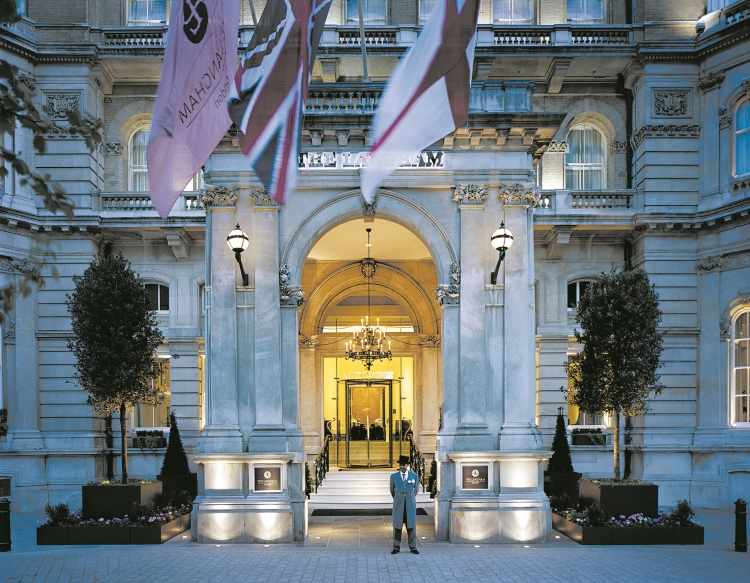
“You will find me at The Langham”. Questa frase, pronunciata dal protagonista del romanzo di Sir Artur Conand Doyle “A scandal in Bohemia”, il primo di una lunga e fortunata serie con protagonista Sherlock Holmes, ha consegnato il The Langham Hotel di Londra alla storia della letteratura inglese.
D’altronde il papà di Sherlock Holmes qui era di casa, come anche Oscar Wilde, Mark Twain, George Orwell, i musicisti Antonin Dvorak ed Arturo Toscanini, il pittore John Millais e la scrittrice romantica Maria Louisa Ramee, meglio conosciuta come Ouida, che qui trascorse addirittura 4 anni, vivendo una vita eccentrica tra tendaggi di velluto neri, candele accese e cascate di fiori purpurei.
[english translation at the bottom of the post]
Il The Langham Hotel fu inaugurato il 10 giugno del 1865 dall’allora Principe di Galles (che sarebbe poi diventato Edward VII) e fu il primo Grand Hotel costruito nella capitale inglese.
Non si badò a spese con un costo complessivo di 300.00 sterline e un tripudio di carte da parati stampate a mano, tappeti persiani e mosaici italiani.
Il the Langham offriva ai propri ospiti corridoi così larghi da permettere a due Signore in crinolina di camminare affiancate ed innovazioni tecnologiche a dir poco mirabolanti per l’epoca come l’aria condizionata, l’elettricità, l’acqua corrente in ogni stanza e addirittura, a partire dal 1890, un nuovo dispositivo chiamato “telefono”!
“You can call me at the Langham” erano soliti dire gli ospiti dell’hotel, tra i quali non mancavano teste coronate e statisti: Napoleone III visse qui gran parte del suo periodo d’esilio, come anche Haile Selassie; Charles de Gaulle e Winston Churchill frequentarono l’hotel all’inizio della Seconda Guerra Mondiale e il The Langham fece da sfondo ad una delle storie d’amore più celebri del Novecento, quella tra Edward VIII e Wallis Simpson che qui si incontravano in gran segreto, contando sulla proverbiale discrezione che solo un hotel di questo livello avrebbe potuto garantire.
Nel 1940 il The Langham chiuse al pubblico dopo essere stato danneggiato durante alcuni bombardamenti e dopo la Guerra divenne proprietà della BBC che trasmetteva da qui l’iconico programma radiofonico Grand Hotel; dopo 5 anni di lavori, costati 80 milioni di sterline, il The Langham ha riaperto i battenti in tutto il suo splendore nel 1991 diventando, dopo qualche anno, uno degli alberghi della collezione internazionale The Leading Hotels of the World.
Cinque dettagli che renderanno il vostro soggiorno al The Langham un indimenticabile #uncommonTravel in perfetto stile LHW:
♥ Al The Langham si respira ancora una romantica atmosfera d’antan e potrete vivere tutti i piccoli ed affascinanti rituali tipici di un Grand Hotel. Il vostro taxi, per esempio, lo chiamerà con un fischio e un cenno della mano il portiere, che indossa ancora la classica livrea con il cilindro e un bocciolo di rosa appuntato sul bavero.
♥ Qui da 150 anni si celebra ogni giorno il rito inglese per eccellenza, quello dell’afternoon tea; seduti ad uno dei tavoli della sontuosa Palm Court, imbandito con la tradizionale selezione di sandwiches, scones e pasticcini, vi sembrerà di gustare il vostro tè al cospetto della settima Duchessa di Bedford che, leggenda narra, ideò questa consuetudine nel lontano 1865.
♥ Fin dalla sua apertura uno dei vanti dell’hotel era quello di avere “personale qualificato a conversare in ogni lingua, dal puro Yankee all’Olandese”. Noi abbiamo fatto il nostro check in conversando amabilmente in italiano con Andy, che è nato ad Alessandria d’Egitto ed incarna alla perfezione l’ideale di concierge cosmopolita del The Langham.
♥ Ho sempre immaginato che nei Grand Hotel lo champagne scorresse a fiumi e in effetti ancora oggi al Langham Club, la lussuosa lounge ospitata al terzo piano dell’hotel, ad ogni ora del giorno vi aspetta il vostro calice di champagne, accompagnato dagli invitanti manicaretti ideati dagli chef Albert Roux e Michel Roux Junior.
(Qui trovate tutte le informazioni inerenti alle modalità di accesso e ai privilegi del Club).
♥ La Chuan Spa è un vero e proprio rifugio nel cuore del West End dove, grazie ai trattamenti olistici ispirati ai principi della Medicina Tradizionale Cinese, potrete indulgere in una pausa di relax, riequilibrando e rivitalizzando Corpo e Spirito.
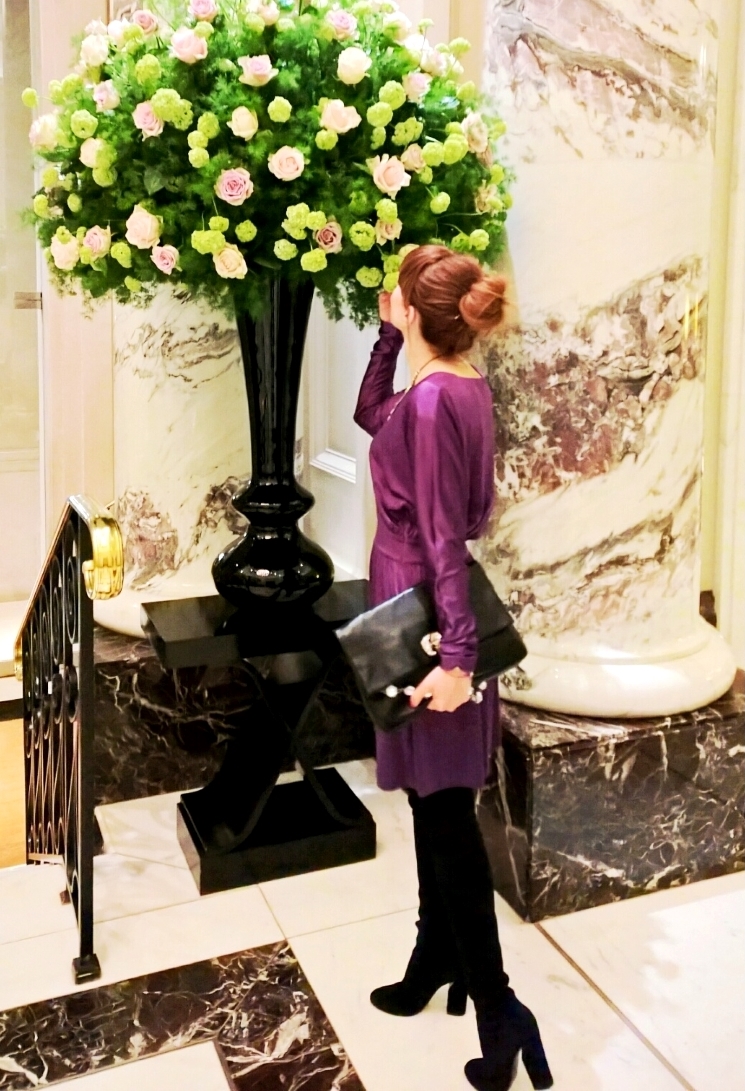
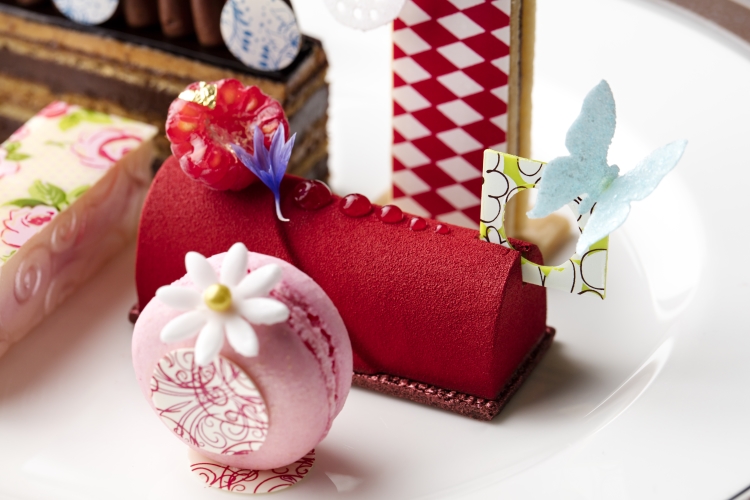
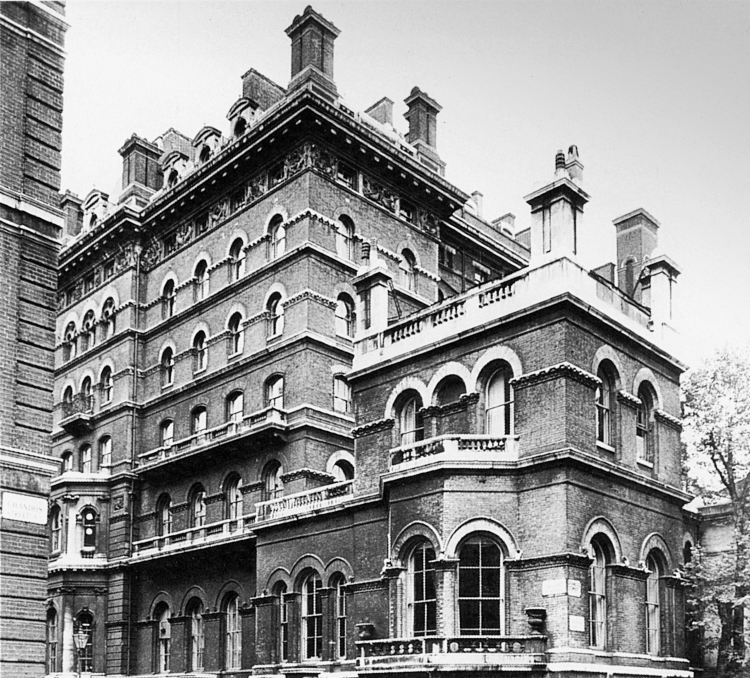
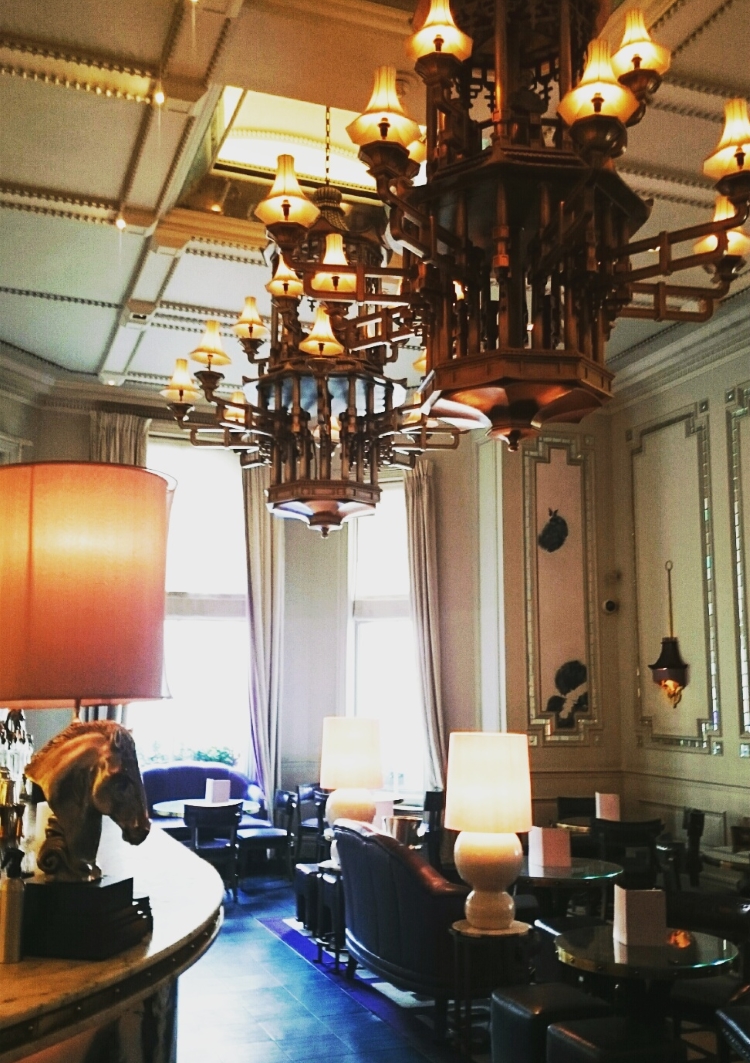
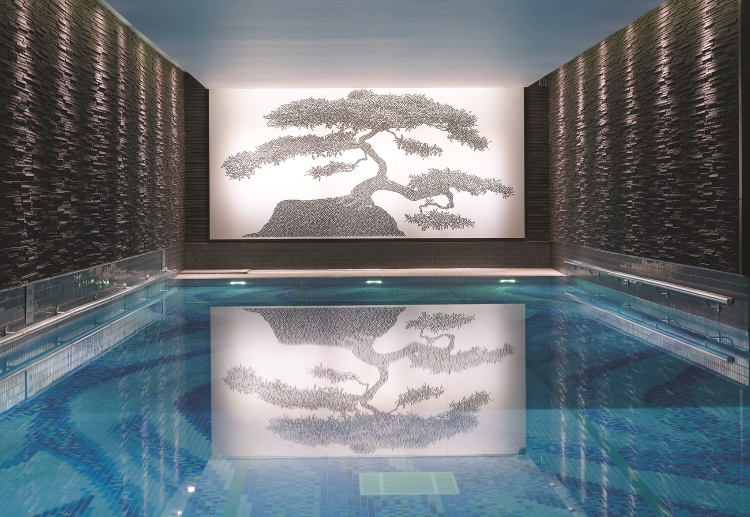
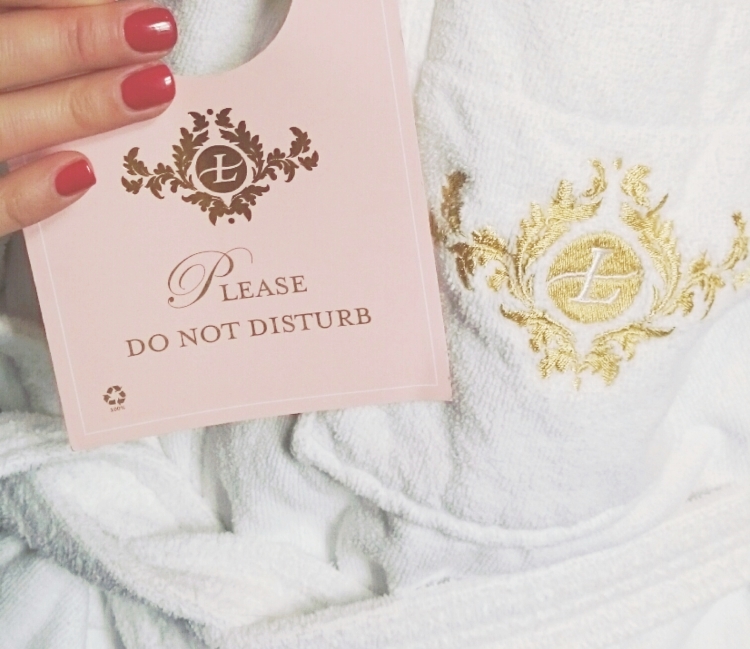
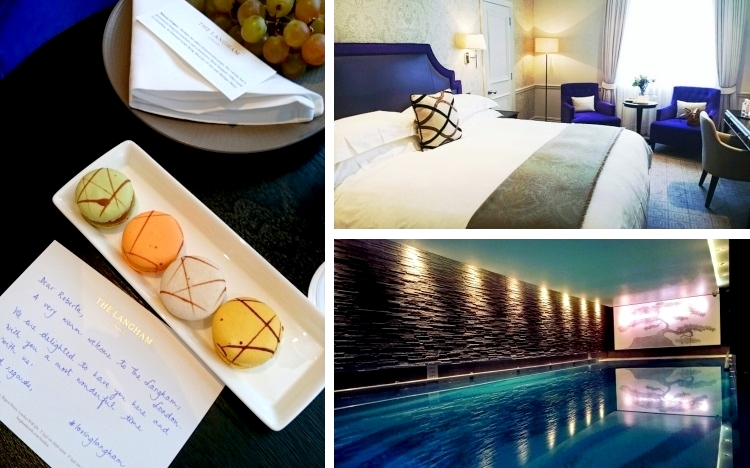
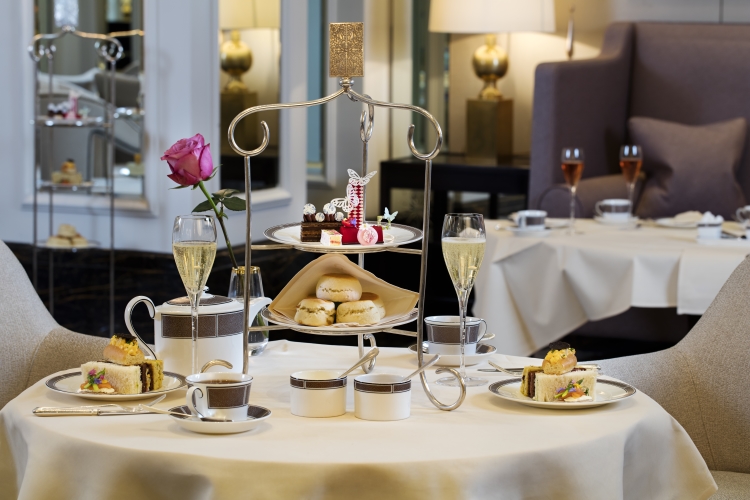

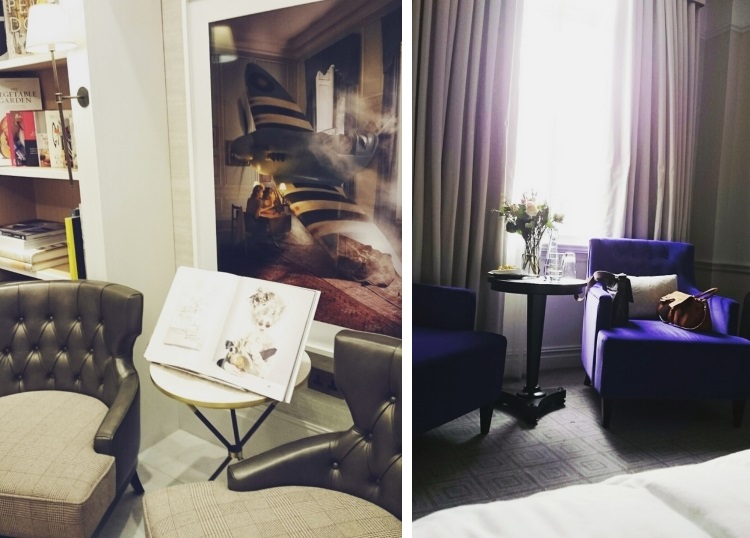
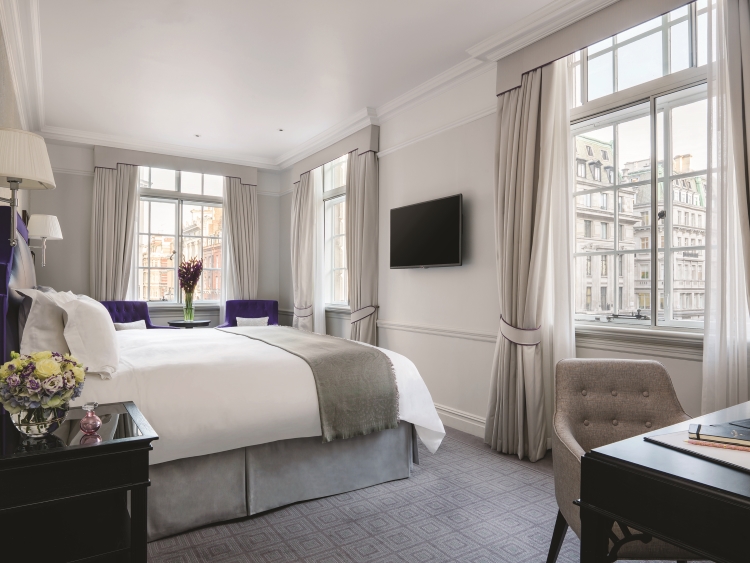
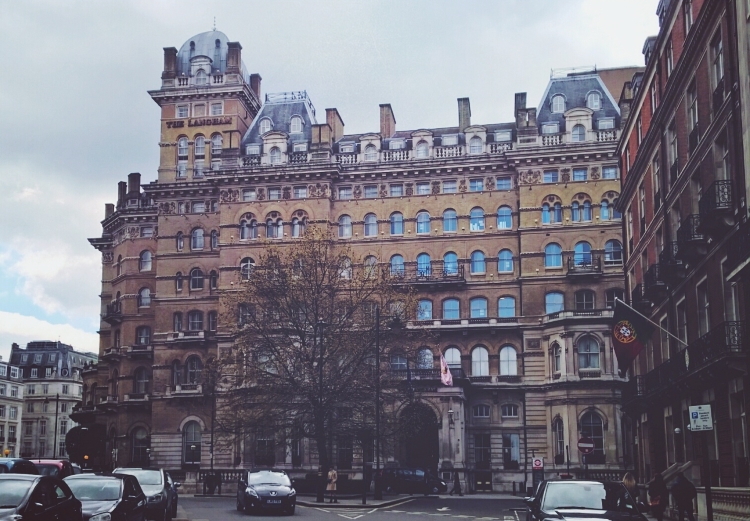
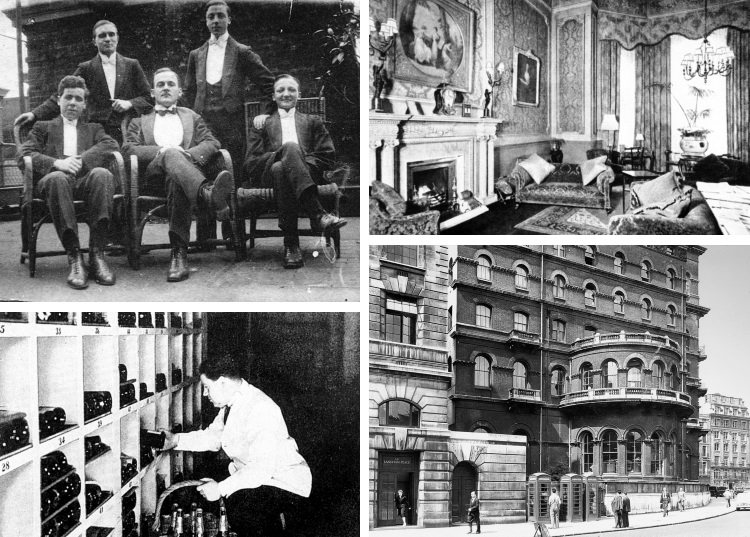
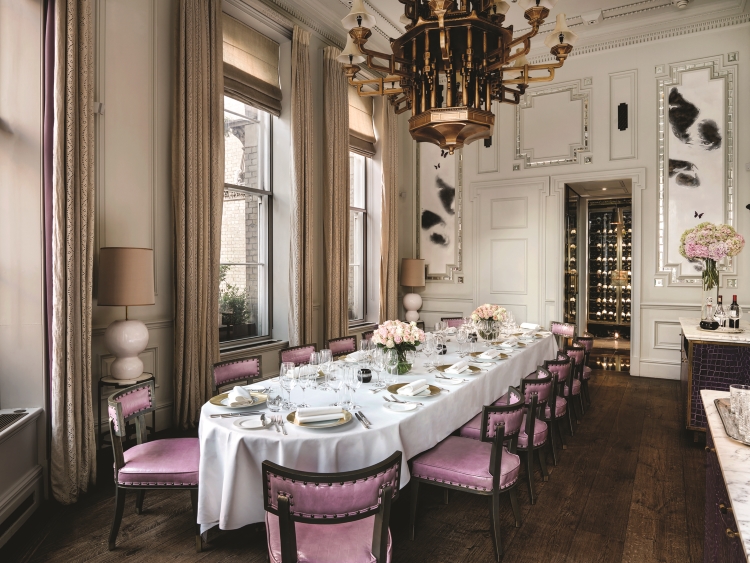
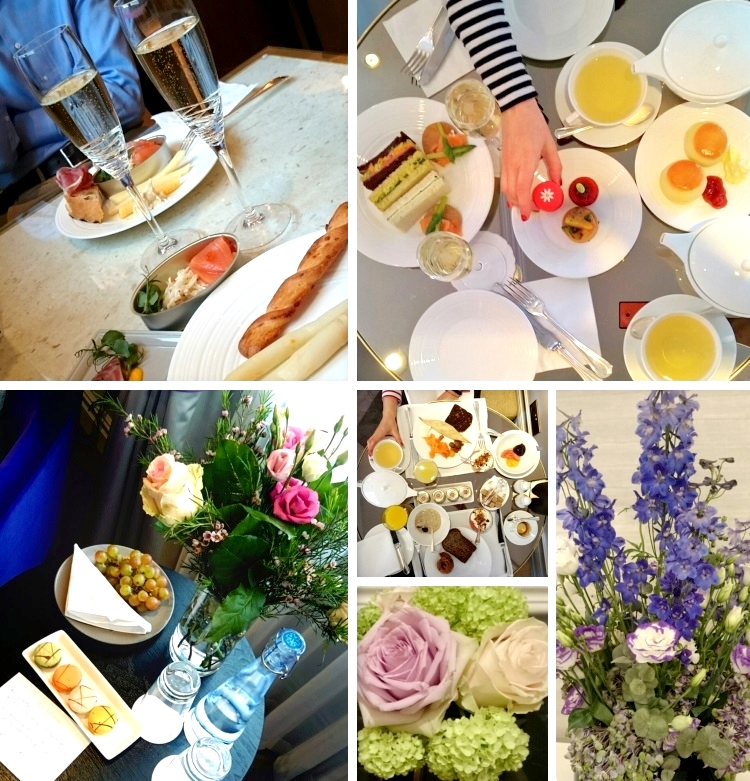
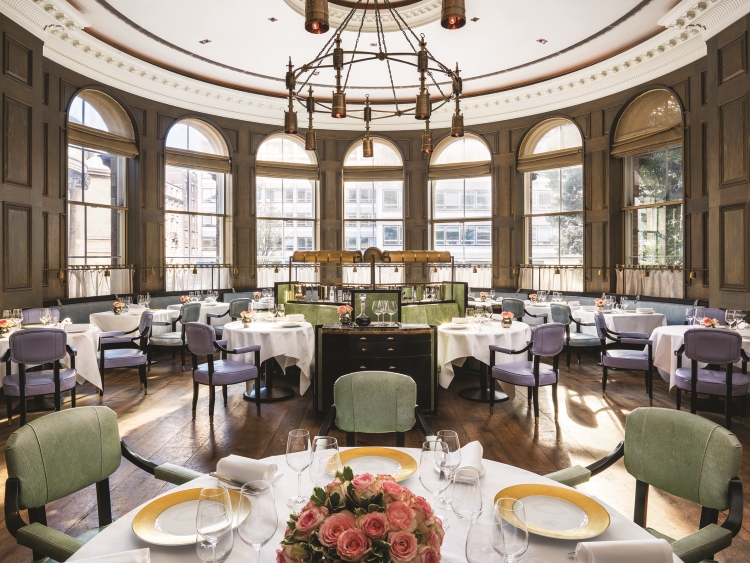
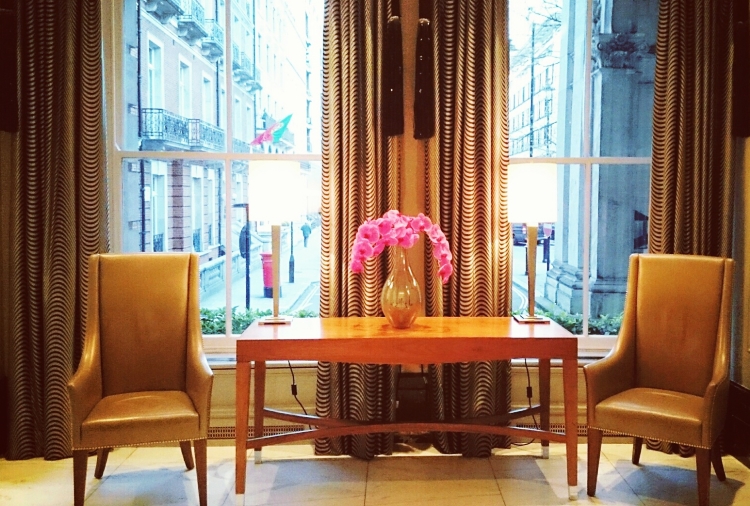
A royal visit at the Langham by the King of Bohemia inspired the writer Sir Arthur Conan Doyle to create his first Sherlock Holmes story, “A Scandal in Bohemia”.
The central character informs Sherlock Holmes: “You will find me at The Langham”, consigning the hotel to the history of English literature.
Here Sir Arthur Conan Doyle was right at home, as well as Oscar Wilde, Mark Twain, George Orwell, the musicians Antonin Dvorak and Arturo Toscanini, the painter John Millais and the romantic novelist Maria Louisa Ramee, also known as Ouida, that took rooms at The Langham, where she lived a fancy and glamorous life for four years, surrounded by purple flowers, candles and black velvet curtains.
The 10 June 1865 opening of The Langham Hotel was presided by The Prince of Wales (later to become Edward the VII) and the occasion immediately sealed The Langham’s reputation as Europe’s first Grand Hotel.
The hotel took fifteen months to build at a cost of £300,000, and was conceived as the last word in luxury with italian mosaic flooring, Persian tapestries and hand-printed wallpaper.
The corridors were designed to allow two ladies in crinolines to pass by each other and the hotel offered extraordinary facilities as air conditioning, hot and cold running water and WCs in every bedroom, electric light and a new device called a telephone!
“You can call me at the Langham” used to say the guests, among which were crowned heads and statesmen: Emperor Louis Napoleon III spent much of his last enforced exile from France at The Langham and in 1936 Haile Selassie became the second emperor-in-exile to stay here; Charles de Gaulle lived briefly at The Langham, at the time of Germany’s occupation of France during the Second World War and Sir Winston Churchill was often in attendance here, when broadcasting messages to the nation via the BBC.
But above all The Langham provided the scene of what is undoubtedly the love story of the century between Mrs Wallis Simpson by Edward VIII, Prince of Wales.
The cumulative effects of direct and indirect bomb attacks during the Second World War eventually caused the public closure of The Langham in the 1940s; after the war the BBC bought the hotel and the iconic radio programme “Grand Hotel” was also broadcast from there.
The Langham was reopened on 4 March 1991 after a £100 million restoration that took over four years and in 2004 became one of The Leading Hotels of the World.
Five details that make your stay at The Langham a LHW #uncommonTravel:
♥ At The Langham you can breathe a romantic yesteryear atmosphere and you can live the little and fascinating rituals of a Grand Hotel. Your taxi, for example, will be called by your doorman whistle, and he still wears the classic livery with the top hat and a a rosebud on his lapel.
♥ Here you can discover the birthplace of traditional afternoon high tea. Sit back in the sumptuous Palm Court and enjoy your cup of tea with the traditional selection of sandwiches, scones and pastries! You got the impression you were in the presence of the 7th Duchess of Bedford, that was the first lady to enjoy an afternoon tea!
♥ By 1870 the hotel had in its employ “persons qualified to converse in every language, from pure Yankee to High Dutch”. We did our check-in conversing in Italian with Andy, that was born in Alexadria of Egypt and embodies the ideal of truly international concierge.
♥ I always imagined the champagne would flow in the Grand Hotels and actually at The Langham Club, the luxurious lounge housed on the third floor, champagne is available throughout the day complemented by tempting food created in collaboration with chefs Albert Roux and Michel Roux Jr.
♥ Chuan Spa London is a luxury haven with a philosophy steeped in the values of Traditional Chinese Medicine. Here you can enjoy a truly holistic journey to re-balance and revitalize the body and soul.




